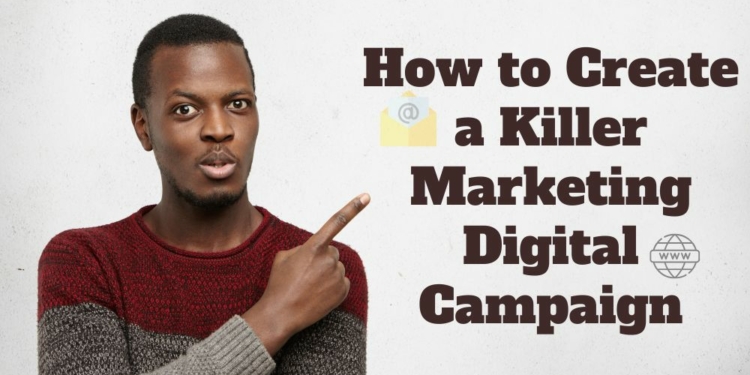Not every marketing plan is destined for success. Specific criteria must be met to ensure a marketing plan can achieve its intended purpose of converting customers and achieving success. Distinguishing a “potentially successful” marketing plan from a mediocre one is relatively straightforward. Generally, an effective marketing strategy adheres to a specific framework.
In this article, we will explore five crucial qualities that define a successful marketing plan.
Understanding Digital Marketing Campaigns
A digital marketing campaign involves a comprehensive strategy that distributes your message across all available digital channels instead of a single one. In simpler terms, if you intend to inform your customers about an upcoming special promotion, you can extend your marketing efforts across various avenues. This could encompass organic search, social media, email, paid advertising, and content marketing.
Advantages of Campaign-Oriented Tactics
Campaign-oriented tactics prove highly effective as they enable real-time engagement with existing and potential customers across their preferred digital platforms. Your presence will be prominent and helpful whether users are avid social media consumers, dedicated email readers, or frequent blog readers.
Adopting this approach ensures that your marketing endeavours connect with your target audience, where they spend most of their online time, enhancing visibility and engagement. This campaign-oriented strategy also contributes to cohesive and efficient marketing, optimizing your budget usage and enhancing the likelihood of achieving your marketing objectives.
Additionally, digital marketing campaigns are measurable, allowing for continuous assessment and refinement until the optimal strategy is realized.
Essential Components of a Digital Marketing Campaign
Any successful digital marketing campaign necessitates a strategic spread across all pertinent digital marketing channels. This approach bolsters brand recognition, amplifies sales, and propels your marketing objectives. Depending on your business type, this might encompass the following:
- Website
- Content
- SEO
- Email Marketing
- Social Media
Website: The Foundation of Success
The vitality of a professional, attractive, and user-friendly website cannot be overstated within digital marketing campaigns. An inadequately designed website risks losing potential customers and squandering resources on ineffective marketing endeavours. Some key pointers for website optimization include:
- Crafting compelling website copy that resonates with your brand’s voice and highlights solutions to your target audience’s problems.
- Placing crucial information “above the fold” to capture immediate attention.
- Simplifying website content to eliminate jargon and information overload.
- Opting for a mobile-friendly design to accommodate diverse devices.
- Prioritizing user experience to facilitate smooth navigation and information retrieval.

Content: Engaging and Informative
Drawing potential customers to your website is just the beginning. To keep them engaged, you need well-crafted, informative content that addresses their needs, resolves problems, and encourages further exploration. Thorough research into your potential customers’ demographics, challenges, and content preferences is essential. Consistent content updates contribute not only to customer engagement but also to improved search engine rankings.

SEO: Guiding Traffic Effectively
Search Engine Optimization (SEO) is pivotal in directing your target customers to your website through search engines like Google. This involves practices such as:
- Integrating relevant keywords into website copy and content.
- Implementing internal linking for seamless navigation.
- Optimizing meta titles and descriptions.
- Ensuring swift website page load speeds.
- Incorporating an FAQ section.
- Regularly reviewing performance data, acquiring backlinks, and refining SEO strategies.
Given the ever-evolving nature of SEO and its increasing complexity, professional SEO expertise is recommended to ensure effective online visibility.

Email Marketing: Personalized Connection
Email marketing retains its status as one of the most impactful methods to engage with customers, provide updates, promote products/services, and foster brand loyalty. The personalized nature of emails often leads to higher open rates compared to targeted ads. Email marketing success hinges on the following:
- Sending informative marketing emails, avoiding spam.
- Crafting compelling subject lines that pique curiosity.
- Placing email list signup forms strategically across the website.
- Leveraging automated marketing funnels to enhance customer loyalty.
Professional assistance is available for those seeking guidance in navigating the intricacies of email marketing.

Social Media: Real-Time Engagement
Social media has emerged as a cornerstone of effective 21st-century digital marketing campaigns. Platforms such as Facebook, Instagram, YouTube, and LinkedIn offer real-time avenues to attract, engage, and showcase products/services to potential customers. A strategic approach involves:
- Developing an overall social media content calendar.
- Tailoring content to suit the unique preferences of each platform’s user base.
- Utilizing engaging content formats such as videos and images.
- Leveraging influencer marketing for brand exposure.

In Conclusion: The Power of Strategic Digital Marketing Campaigns
A well-executed digital marketing campaign is essential for a substantial online impact encompassing customer growth, heightened brand visibility, and increased revenue. This holistic approach optimizes marketing efforts, conserves valuable resources, and facilitates customer acquisition, conversion, and satisfaction. Embrace the power of strategic digital marketing campaigns to thrive in the digital landscape truly.


Discussion about this post